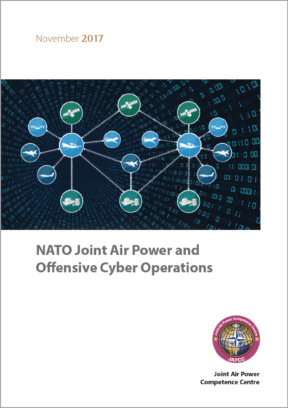Introduction
The successful projection of Joint Air Power relies heavily on Cyberspace for complex mission systems, C4ISR and Space Support to Operations. Assets operating in the air environment must have freedom of movement, literally and in Cyberspace, to effectively project power and, ultimately, secure Air Superiority, without which there is a grave risk to mission accomplishment.
As a vital component in the projection of Air Power, Cyberspace has surpassed its mark as an enabler, now recognized as not only critical to mission assurance but a Domain of operations in itself. Consequently, it is critical that the systems operating in Cyberspace be secure, reliable and available and establishing these criteria by employing defensive measures alone may be insufficient. It may be necessary to exploit the ability to attack those systems attacking NATO, to include an adversary’s mission systems, and even as part of a joint effort to accomplish the mission. Ultimately, we must ask ourselves whether Defensive Cyberspace Operations (DCO) alone are sufficient, or whether this posture inhibits the adequate projection of Joint Air Power. A strong argument can be made that NATO must be able to request and/or exploit offensive Cyberspace effects.
In this White Paper, JAPCC looks back at the evolution of Cyberspace within NATO, from the initial use of IT/CIS for basic digital communications needs, through to the declaration of Cyberspace as a Domain of operations. Lessons learned from key events as well as research papers are cited in an assessment that asserts offensive Cyberspace operations and effects are required to have the most effective Cyberspace posture, suggests how they might be applied in Joint Air Power scenarios, and offers that structural models already exist for how this capability might be incorporated into the NATO organization and processes.











